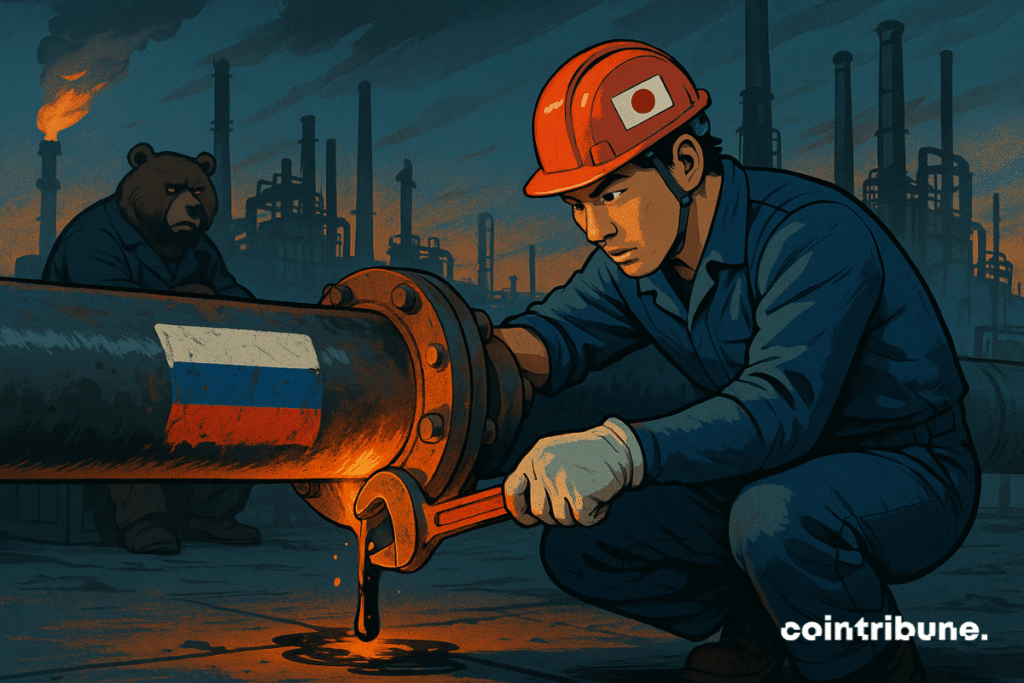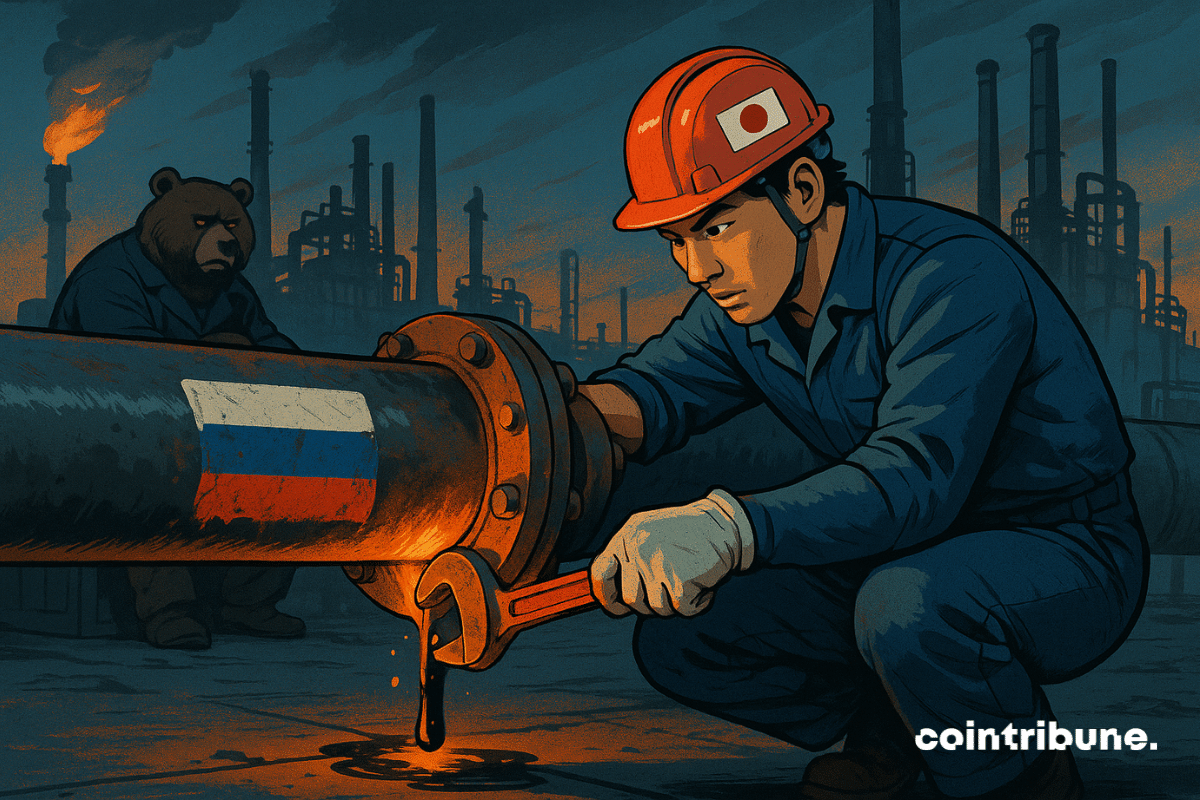8 June 2025, an oil tanker under American and European sanctions discreetly recognized in Japan and supplies Russian oil to the local refinery. This gesture, far from the trivial, reveals a quiet fracture in the western consensus of energy. While the G7 has been trying to isolate Moscow for two years, Tokyo favors its energy safety. This episode, symbolic, so strategic, could well redraw the line of global energy ranking in the composition.

In short
- Japan imported Russian oil for the first time since 2022 and broke two years of interruption associated with G7 sanctions.
- The cargo was delivered on June 8, 2025 Voyager, the ship explicitly sanctioned by the United States and the European Union.
- This operation, albeit accurate, is based on Japanese deviations related to national energy security.
- This strategic choice reflects rising tensions between international political commitments and local energy reality.
Return under the supervision of Russian gross to Japan
While Donald Trump mentioned 50 % of Russian oil taxes, Japan led a raw load for the first time in more than two years. Delivery has been made “Travel”Tanker, which can be punished by both the United States and the European Union, which makes the operation particularly remarkable.
The ship was accepted on June 8, 2025 in the installation of Taiyo Oil, which confirmed that it had bought Russian oil.
It is a Sakhalin mixture, a type of vulture extracted in the Russian Far East, in connection with the energy projects of Sakhalin-1 and Sakhalin-2. If the operation remains exceptional, it challenges several specific elements:
- Japan has imported Russian oil since 2022, when after the invasion of Ukraine, it joined with G7 sanctions.
- Brut comes from the strategic region (Sakhalin Island), where Japan is still interested in gas projects through Mitsui and Mitsubishi.
- The delivery was made by a ship explicitly sanctioned by Western powers that could theoretically represent legal or diplomatic problems.
- This operation seems to have been made possible by the specific deviations that Japan maintains to ensure its energy safety, especially with regard to the supplies of sachalin.
These elements emphasize the growing tension between geopolitical liabilities and energy interests, in the context of when the autonomy of supplies becomes a vital problem for Tokyo.
Between political alliances and energy realities
Delivery operations, albeit discreet, are already subject to questions in diplomatic and energy circles. There is also that Tokyo remains officially in accordance with Western sanctions.
The Japanese authorities did not issue any official response. However, this import is motivated by the need to maintain the stability of liquefied natural gas (LNG), especially in connection with infrastructure and sachalin projects.
If Cargo concerns oil, it could be indirectly used to maintain Japanese strategic interests in gas projects by avoiding Russia’s insult, the flag country of the Brics alliance.
This decision is not without the risk of Japan’s image on the international scene. Although Western sanctions against Russia are mainly aimed at reducing Moscow unexpected unexpected, Japan has already gained some deviations to continue to import Russian LNG.
This time it is clear oil, transported by a sanctioned boat. In addition, this could support diplomatic tension, especially in Washington, the main strategic ally of Tokyo. Delivery, albeit accurate, could also prepare a way for similar initiatives from other Asian countries, thus weakening the anti-Cremlin the energy front.
Can Japan permanently align its political obligations with its energy restrictions in the medium term? If additional costs follow, this may mean the beginning of the quiet flexibility of banning Russian oil in Asia, in the context where the current energy intake can no longer support military expenses. This operation remains an officially tolerated exception for the time being, but reveals the growing tension between diplomatic ethics and energy reality in the world where alliances are vaccinated in the face of economic survival.
Maximize your Cointribne experience with our “Read to Earn” program! For each article you read, get points and approach exclusive rewards. Sign up now and start to accumulate benefits.
I graduated from Toulouse and Blockchain Consultant Certification Certification Certification Certification I attached to the adventure of Cointtribuna in 2019. I was convinced of the potential of blockchain to transform many sectors of the economy, and I committed to raising awareness and inform the general public about how the ecosystem took place. My goal is to allow everyone to better understand blockchain and take the opportunity they offer. I try to provide an objective analysis of messages every day, decrypt trends on the market, hand over the latest technological innovations and introduce the economic and social issues of this revolution.
Renunciation
The words and opinions expressed in this article are involved only by their author and should not be considered investment counseling. Do your own research before any investment decision.






